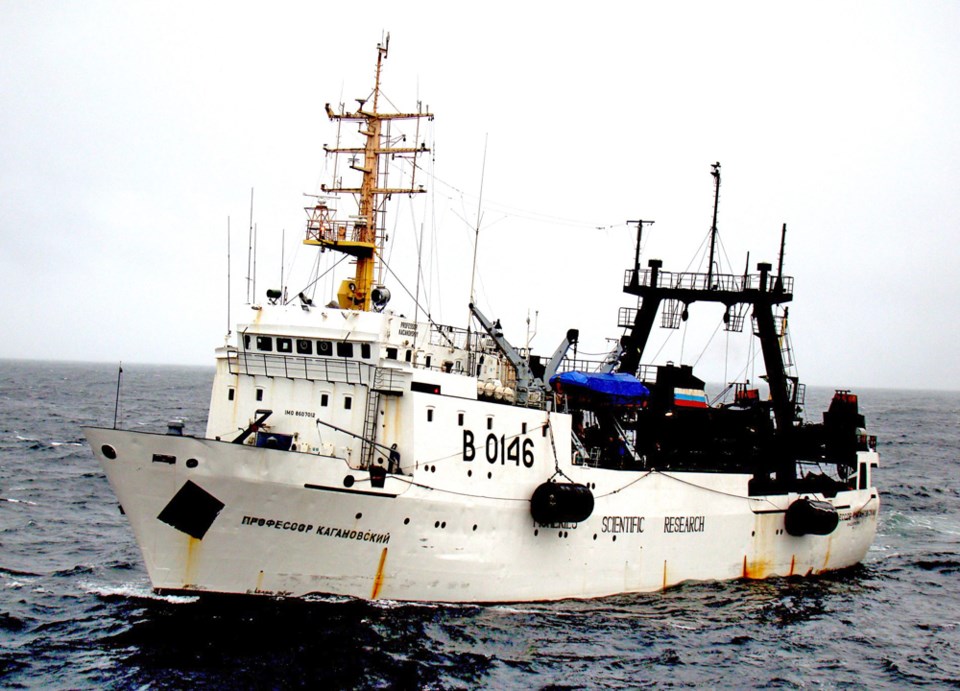The Russian trawler that carried an international team of scientists on a month-long expedition in the Gulf of Alaska to investigate how Pacific salmon survive in the high seas has returned to Vancouver.
Expedition organizer Richard Beamish, emeritus scientist at the Pacific Biological Institute in Nanaimo, said he was surprised that catches of salmon were lower than he had anticipated.
“In general, I expected four or five times as many.”
Beamish had thought nets would haul in far more pink salmon.
The question is whether the low numbers of pinks will be reflected in returns this fall to the area stretching from the Fraser River up to southeast Alaska.
Chartered trawler Professor Kaganovsky pulled into Vancouver on Monday, signalling the end to the first-of-its kind venture. The landmark expedition set off from Vancouver in mid-February with 21 volunteer scientists from Canada, Russia, the U.S., Japan and South Korea on a co-operative venture to gather and share new data.
It was put together by Beamish, who convinced public and private agencies to donate up to $1.5 million to pay for the expedition.
International scientists did on-board research, including identifying DNA from salmon fin samples. They have a wide variety of samples carefully packed up to take to their home laboratories for follow-up research.
One objective of the expedition, marking the International Year of the Salmon, was to “work together as an international team of scientists to make discoveries that were necessary for future stewardship,” Beamish said.
That was successful. Scientists got along well as they coped with a complex sampling schedule, language challenges and, at times, poor weather, he said.
The second goal was to understand the fundamental mechanisms in the lives of the salmon. “We made progress that way,” Beamish said. It will take a few months to analyze the data obtained on the expedition, he said.
He’s now looking ahead to raising more funds for his next goal — a workshop for all participants this fall. Beamish is also hoping to see future similar high-seas expeditions to continue building on knowledge gained this year.



